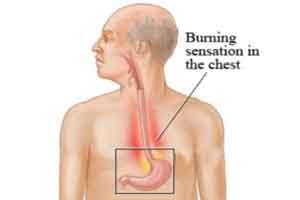- Home
- Editorial
- News
- Practice Guidelines
- Anesthesiology Guidelines
- Cancer Guidelines
- Cardiac Sciences Guidelines
- Critical Care Guidelines
- Dentistry Guidelines
- Dermatology Guidelines
- Diabetes and Endo Guidelines
- Diagnostics Guidelines
- ENT Guidelines
- Featured Practice Guidelines
- Gastroenterology Guidelines
- Geriatrics Guidelines
- Medicine Guidelines
- Nephrology Guidelines
- Neurosciences Guidelines
- Obs and Gynae Guidelines
- Ophthalmology Guidelines
- Orthopaedics Guidelines
- Paediatrics Guidelines
- Psychiatry Guidelines
- Pulmonology Guidelines
- Radiology Guidelines
- Surgery Guidelines
- Urology Guidelines
Surgery effective option for some GERD patients refractory to PPI's: NEJM

Heartburn that persists despite proton-pump inhibitor (PPI) treatment is a frequent and taxing clinical problem. The present available treatment options including Baclofen and desipramine have unproven efficacy. According to results from a randomized trial, surgery may be more effective than medical therapy in reflux-related heartburn refractory to proton pump inhibitors (PPIs). The findings of the new study have appeared in the New England Journal of Medicine.
Dr Stuart J. Spechler, MD, from Baylor University Medical Center, Dallas, and coauthors in this study, randomized patients either to laparoscopic Nissen fundoplication, treatment with omeprazole plus baclofen with desipramine depending on symptoms, or a control treatment of omeprazole plus placebo. The primary outcome was treatment success, defined as a decrease of 50% or more in the Gastroesophageal Reflux Disease (GERD)–Health-Related Quality of Life score (range, 0 to 50, with higher scores indicating worse symptoms) at 1 year.
The authors noted that 366 patients with PPI-refractory heartburn were originally enrolled in the study, then treated with 20 mg of omeprazole twice daily for 2 weeks with strict instructions to take 20 minutes before breakfast and dinner. Of these patients, 42 had their symptoms relieved by the omeprazole treatment and so were excluded from the randomization.
In addition, a prespecified subgroup analysis among people with reflex hypersensitivity or abnormal acid reflux also revealed the incidence of success with surgery as 71% and 62%, respectively. The investigators described this finding as highly significant given that reflux hypersensitivity was considered a functional disorder that would not be expected to improve with a procedure that didn’t alter abnormal oesophagal pain perception.
The researchers concluded that among patients referred to VA gastroenterology clinics for PPI-refractory heartburn, systematic workup revealed truly PPI-refractory and reflux-related heartburn in a minority of patients. For that highly selected subgroup, surgery was superior to medical treatment.
“This trial highlights the critical importance of systematic evaluation, similar to that recommended by Gyawali and Fass for managing the care of patients with PPI-refractory heartburn,” they wrote. “Many patients would not complete this rigorous evaluation, and among those who did, the cause of heartburn in most of them was not [gastroesophageal reflux disease].”
For further reference log on to :
Spechler SJ et al. N Engl J Med. 2019 Oct 16. doi: 10.1056/NEJMoa1811424.

Disclaimer: This site is primarily intended for healthcare professionals. Any content/information on this website does not replace the advice of medical and/or health professionals and should not be construed as medical/diagnostic advice/endorsement or prescription. Use of this site is subject to our terms of use, privacy policy, advertisement policy. © 2020 Minerva Medical Treatment Pvt Ltd